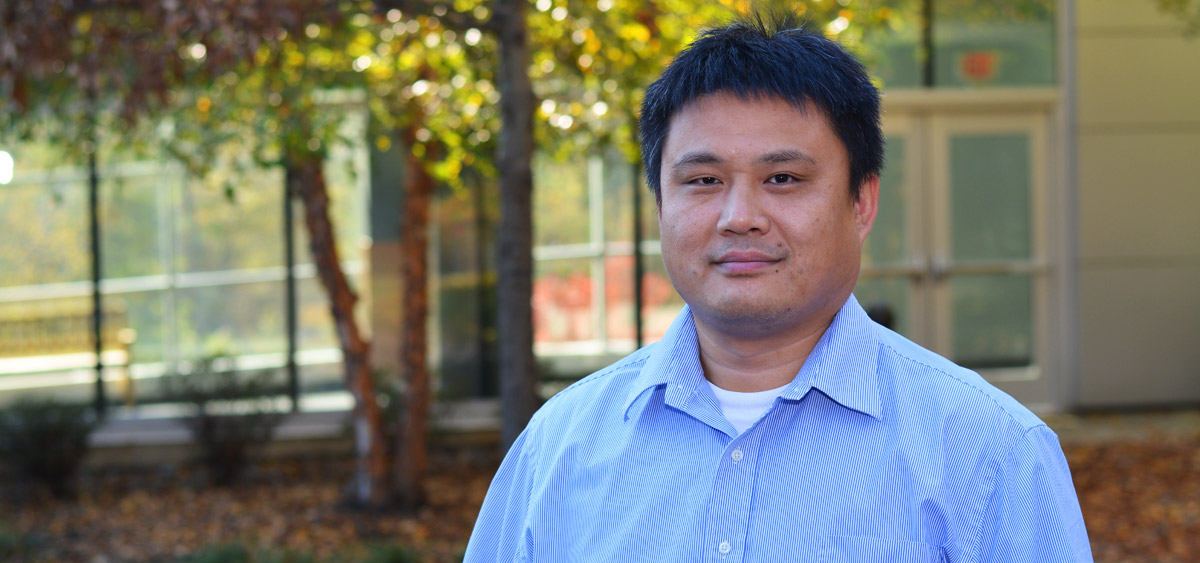Weather Alert: Following the winter storm, all Temple Health hospitals, campuses and clinical locations remain open. Patients will be contacted directly if their visit is affected. Please check TempleHealth.org or FoxChase.org for updates and monitor myTempleHealth for changes to scheduled appointments.
Breadcrumb
- Home
- Fox Chase Cancer Center News
- Finding by Cancer Researchers Will Help Identify New Targets for Treatment of Autoimmune Diseases
Finding by Cancer Researchers Will Help Identify New Targets for Treatment of Autoimmune Diseases

PHILADELPHIA (March 11, 2019) — Adhesion of lymphocytes to their cellular targets is critical to adaptive immunity, the body’s ability to assign specific antibodies to pathogens. This process is controlled by a group of cell surface receptors called integrins through a cascade of molecular events known as inside-out signaling. This pathway is regulated by a small GTPase closely related to the RAS oncogene called RAP1.
Jinhua Wu, PhD, associate professor in the Molecular Therapeutics Program at Fox Chase Cancer Center, has found that the RAP1 function can be suppressed if its effector protein (RIAM) adopts an autoinhibitory configuration, and this suppression of RAP1 function is released once RIAM is phosphorylated. This result reveals the first example of a novel regulatory mechanism by which an effector protein is autoinhibited, thus offering a new strategy for the identification of novel targets to better treat autoimmune diseases associated with RAP1 and integrin.
Wu’s lab focuses on understanding the structural basis of intermolecular complexes and intramolecular rearrangements that control integrin-mediated cell adhesion and motility. Their aim is to enable the development of next-generation inhibitors by mapping the structural details of each signaling event involved in this pathway.
The paper, entitled, “Molecular basis for autoinhibition of RIAM regulated by FAK in integrin activation,” appears in Proceedings of the National Academy of Sciences.
This work was supported by grants GM119560 and CA163489 from the National Institutes of Health, 4100068716 from the Pennsylvania Department of Health, RSG-15-167-01-DMC from the American Cancer Society, and Pilot Project Award 5P30CA006927-51 made possible with a portion of the Cancer Center Support Grant.
Fox Chase Cancer Center (Fox Chase), which includes the Institute for Cancer Research and the American Oncologic Hospital and is a part of Temple Health, is one of the leading comprehensive cancer centers in the United States. Founded in 1904 in Philadelphia as one of the nation’s first cancer hospitals, Fox Chase was also among the first institutions to be designated a National Cancer Institute Comprehensive Cancer Center in 1974. Fox Chase is also one of just 10 members of the Alliance of Dedicated Cancer Centers. Fox Chase researchers have won the highest awards in their fields, including two Nobel Prizes. Fox Chase physicians are also routinely recognized in national rankings, and the Center’s nursing program has received the Magnet recognition for excellence six consecutive times. Today, Fox Chase conducts a broad array of nationally competitive basic, translational, and clinical research, with special programs in cancer prevention, detection, survivorship, and community outreach. It is the policy of Fox Chase Cancer Center that there shall be no exclusion from, or participation in, and no one denied the benefits of, the delivery of quality medical care on the basis of race, ethnicity, religion, sexual orientation, gender, gender identity/expression, disability, age, ancestry, color, national origin, physical ability, level of education, or source of payment.
For more information, call 888-369-2427